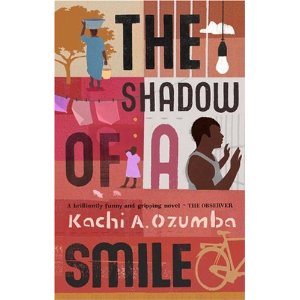The Shadow of a Smile

Shortlisted for the Regional Award for Africa at the 2010 Commonwealth Writer’s Awards
Shortlisted for the 2010 Royal Society of Literature Ondaatje Prize. The winner will be announced at a celebratory dinner on May 24th.
Lonlisted for the Desmond Elliott Prize 2010 in support of new writers. A shortlist of three from the ten strong longlist will be announced on 26th May and the overall winner announced on 23rd June.
Torn from his father and a loving sister, the young student Zuba is imprisoned for a crime he has not even thought about committing. His misfortune: to live in a world where corruption is rife and honest and law-abiding people are crushed by the wheels of a blind, unscrupulous bureaucracy. What seems at first to be an irksome judiciary misunderstanding gradually becomes a journey through the hell of Nigerian prisons. Only by showing the utmost daring and integrity will Zuba be able to regain his freedom.
Funny, crude, poignant, Kachi Ozumba’s debut novel reveals the darker side of a country striving to consolidate democracy after years of dictatorship and tribal in-fighting. There is as much of he Shawshank Redemption in this story as there is Don Quixote, and lovers of Chinua Achebe, Ben Okri and J.M. Coetzee will also find much to delight and inspire them.
Praise for The Shadow of a Smile
“Kachi A. Ozumba not only writes about a big important subject – corruption and imprisonment in Nigeria – he does so with consummate skill and humour. Ozumba has a brilliant ear for dialogue: he brings Nigeria bubbling to the page. At times poignant, lyrical and often very funny, Kachi A. Ozumba is a talent to watch out for.”
Jackie Kay
Jackie Kay chose this title as one of her Books of the Year 2009 for the Guardian saying: ‘The Shadow of a Smile (Alma Books) is a brilliantly funny and gripping novel that examines the corruption and hypocrisy within the Nigerian justice system.’
“The Shadow of a Smile takes the reader on a painstaking excursion through the catacombs of Nigeria’s penal system… Ozumba’s gift for capturing detail is astonishing, if not so surprising for someone who has been a victim of this system. Ozumba has written a tragic story exploring the powerlessness of the law, and the ease with which it can be abused by those appointed its custodians.”
The Independent